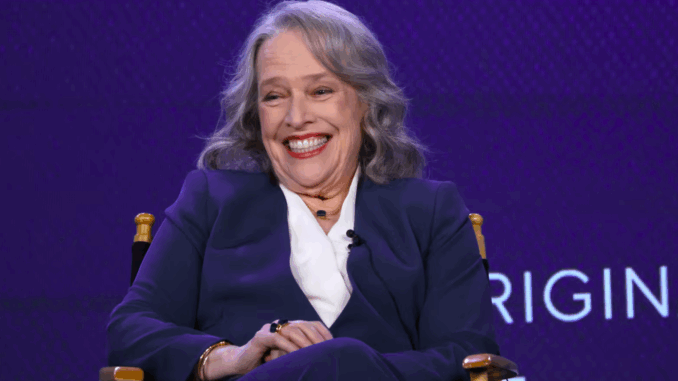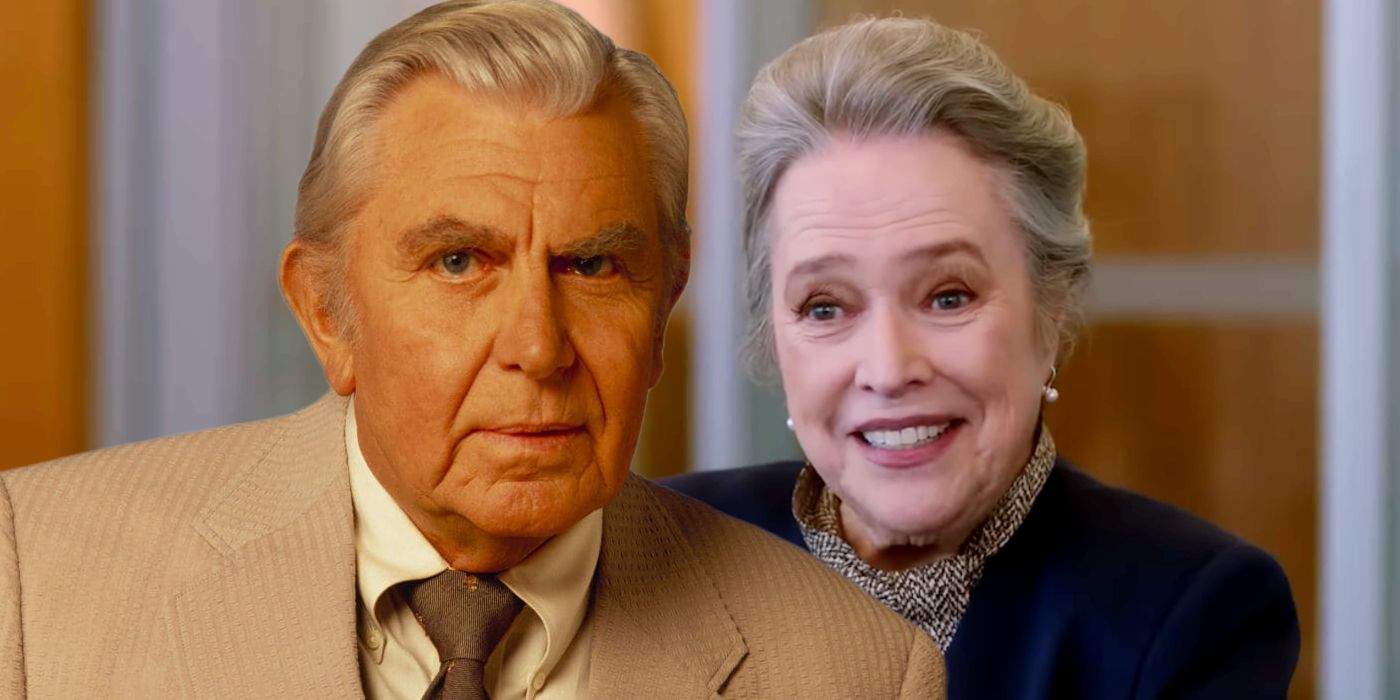
A Quiet Goodbye With a Loud Message
Kathy Bates has never done things the easy way. Over the course of five decades, she’s built a career defined not by glamour but by grit. So it’s perhaps fitting that her final role would be as Madeline Matlock—a sharp, unyielding legal force navigating the complex intersections of age, gender, and justice in CBS’s reboot of Matlock.
At 76, Bates is calling this performance her “last dance,” a swan song years in the making. “It’s exhausting,” she told The New York Times. But it’s also deeply personal. This isn’t just another role—it’s the culmination of everything she’s endured, both onscreen and off.
From Annie Wilkes to Madeline Matlock
Bates first captured the public imagination with her Oscar-winning turn as the disturbingly obsessed Annie in Misery. Since then, she’s played dozens of roles—many of them defined by rage, repression, or resolve. But in Matlock, she found something different: not just a character to inhabit, but a statement to make.
“This is a woman written with intelligence, complexity, and humanity,” Bates said during the Television Critics Association panel. “And that shouldn’t be rare for someone my age.”
Behind the Scenes: A Different Kind of Courtroom
CBS’s Matlock is not a straight remake. It’s a reimagining—retaining the procedural structure of the original while layering in modern themes like ageism, identity, and systemic failure. Executive producer Jennie Snyder Urman, best known for Jane the Virgin, says the goal was clear: “We wanted the audience to be surprised when they underestimated her—and then be thrilled when she outmaneuvered everyone.”
Madeline Matlock isn’t just fighting legal battles—she’s fighting societal expectations.
Health, Pain, and Perseverance
Bates has been open about her health struggles, including ovarian and breast cancer and a long battle with lymphedema. “I didn’t care about myself,” she reflected. “Acting was all I had.” That pain shows up in Madeline Matlock—who, like Bates, is quietly angry, vulnerable, and resolute.
By choosing to retire on Matlock, Bates isn’t quitting. She’s redefining what it means to leave on your own terms.
What’s Next?
There’s no second act planned. “This is it,” Bates said. And while Hollywood may mourn her exit, Matlock ensures she’s leaving on a high note. She didn’t go quietly—she went with a gavel in hand, slamming it down with finality.
Article 2: The Feminist Rebirth of ‘Matlock’: How CBS Turned a Classic Into a Battle Cry Against Ageism
When a Legal Drama Becomes a Political Statement
When CBS announced it would reboot the beloved 1980s legal drama Matlock, fans of the original likely expected a nostalgic courtroom procedural. What they got instead was a sharp, character-driven drama starring Kathy Bates as Madeline Matlock—a silver-haired attorney who refuses to fade into the background.
Underneath the familiar courtroom setting lies something more radical: a show that directly confronts the entertainment industry’s long-standing dismissal of older women.
A Role That Shouldn’t Exist—But Does

In Hollywood, roles like Madeline Matlock are almost never written for women in their 70s. Executive producer Jennie Snyder Urman knew that. “We wanted to write about the invisibility older women face—and then give them a character who refuses to be ignored,” she said.
With Bates at the helm, Matlock becomes more than a reboot. It’s a referendum.
The Audience Isn’t Just Watching—They’re Listening
The original Matlock, starring Andy Griffith, was warm and procedural. The reboot is still a legal drama, but one with bite. “There’s a reason this show hits different,” says critic Marlene Vega. “It’s not just about solving cases—it’s about surviving systems that want to silence you.”
Each episode is framed by Madeline’s awareness that she’s being judged—for her age, for her sharpness, for refusing to be polite. And each week, she wins—not just in court, but against the biases built into her world.
Not Just a Victory—A Legacy
For Kathy Bates, Matlock is more than a gig. It’s a symbol. She’s not just leaving Hollywood—she’s leaving a blueprint for the next generation of actors, writers, and showrunners.
“When we see an older woman on screen who is allowed to be complex, we all benefit,” says Snyder Urman. “We wanted to make something with purpose. Kathy gave it power.”
A Show for Everyone Who’s Been Told ‘You’re Too Old’
At its core, Matlock is about dignity—the kind rarely afforded to characters over 70, especially women. Bates may be retiring, but the show’s message isn’t going anywhere.
With CBS’s gamble paying off in both ratings and acclaim, Matlock has proven that courtroom drama can be radical, that reboots can say something new—and that some battles are worth fighting to the very end.